No One Alone: Stories
Transforming Loneliness and Social Isolation
Many Salvation Army corps and centres are taking steps to alleviate the impacts of loneliness and social isolation.
Most responses are aimed at reaching out to people within the identified vulnerable groups – for example, older people, carers and young adults (16-24 years old). This page highlights some of the projects, approaches and stories already positively impacting individuals. Be inspired to make a difference in your area.
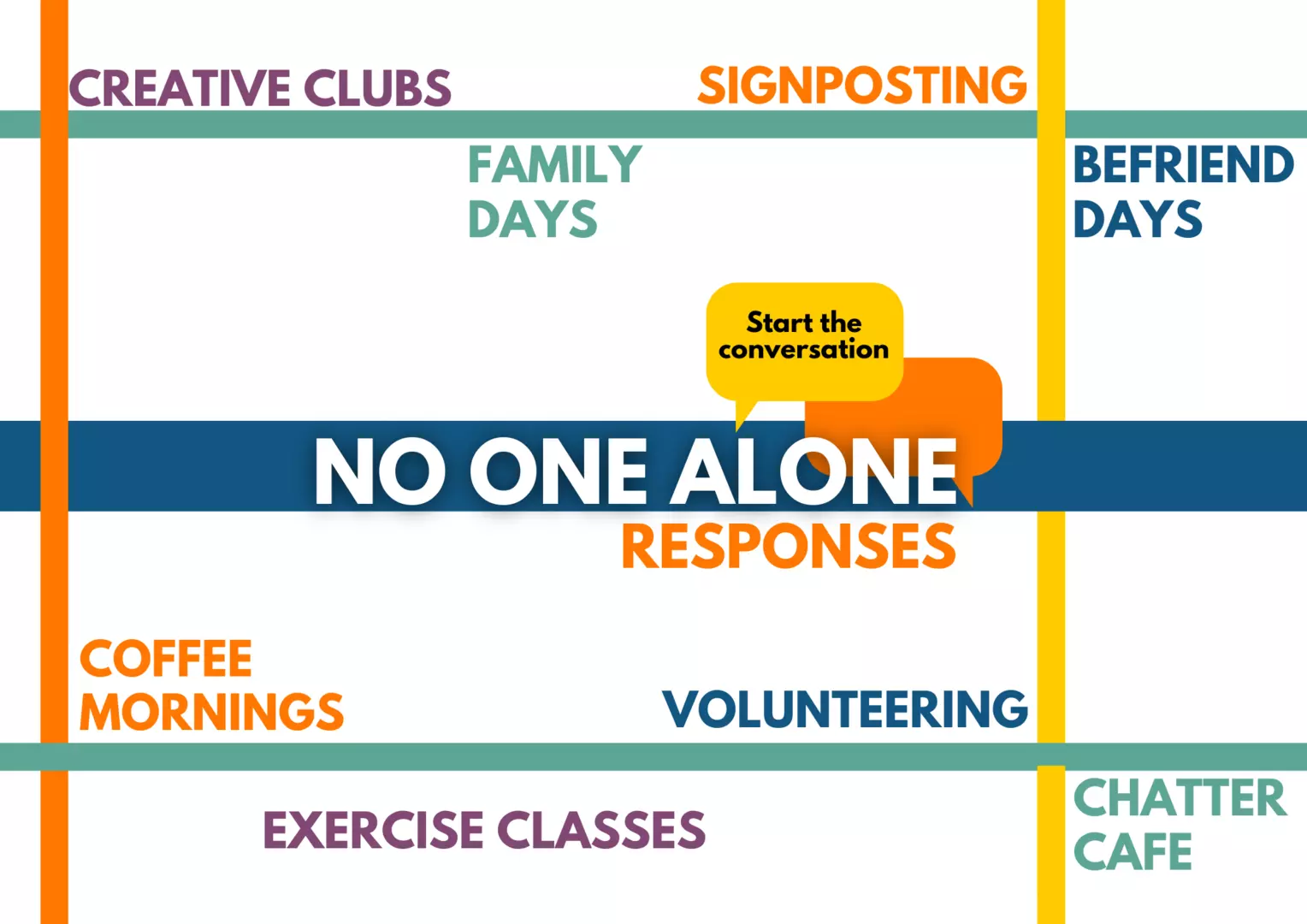
Chatter Café
Kilburn Corps has created a welcoming environment for individuals to socialise over a hot drink. Similarly at Bangor Corps, a lady came along to a coffee morning and now feels included and her feelings of loneliness have lifted.
Memory Café
Alongside creating an official role of Community Engagement Lead, Regent Hall has opened a Memory Café. This is aimed at individuals living with dementia to come to a creative space and socialise. It also gives an opportunity for carers to meet and support each other. These people have all been recognised as the most vulnerable to the impacts of loneliness and isolation. The work at Regent Hall is vital both to individuals living with dementia and to their carers, to help alleviate the impacts of the condition.
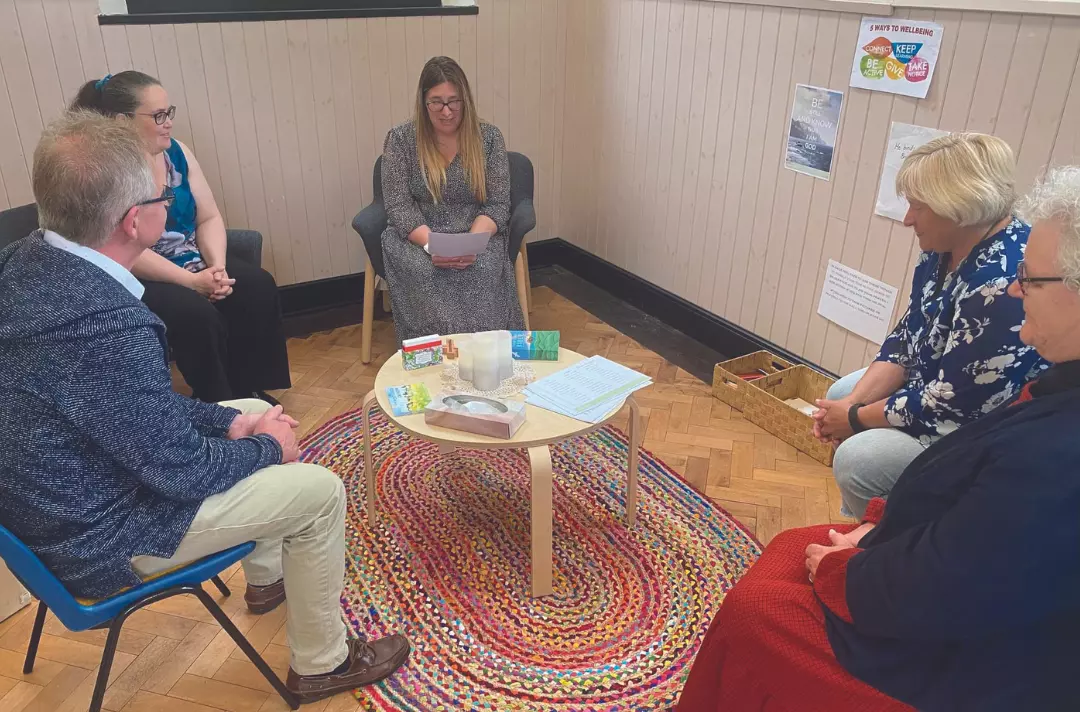
Wellbeing Lounge
Renew Wellbeing is a Christian organisation managing a network of wellbeing lounges all around the UK. In Harwich, The Salvation Army works in partnership with other churches running the Harwich Wellbeing Lounge. It offers a space once a week for people to reflect and pray. Recently they made model clay hearts to hang in the local area to spread positivity and hope.
‘One of our ladies is in her 80s,’ says Lieutenant Victoria Moye. ‘The first week she came, she just observed. The next week she sat next to someone and taught them how to play Mahjong. This past week she had nearly the whole table playing it.’
Community Boxing Group
The York Community Boxing Engagement is led by Charlie Malarkey who works for The Salvation Army’s Homelessness Services and is helping men and women each week who have addictions and/or are experiencing homelessness. It uses boxing as a vehicle for discovering more about themselves as they work out together.
This project is supporting people who are lonely, isolated, lost and seeking peace, giving them confidence and worth by belonging to this community of sport and helps them feel accepted. There are many examples of God being at work in this place, including many stories of transformation and being on a journey individually and collectively.
Friends on Friday
Wrexham Corps leads weekly Bible-based activities and discussions as well as organising social gatherings. Some of the attendees now attend Sunday worship and feel included in the corps through their Warm Welcome initiative and Friends on Friday group.
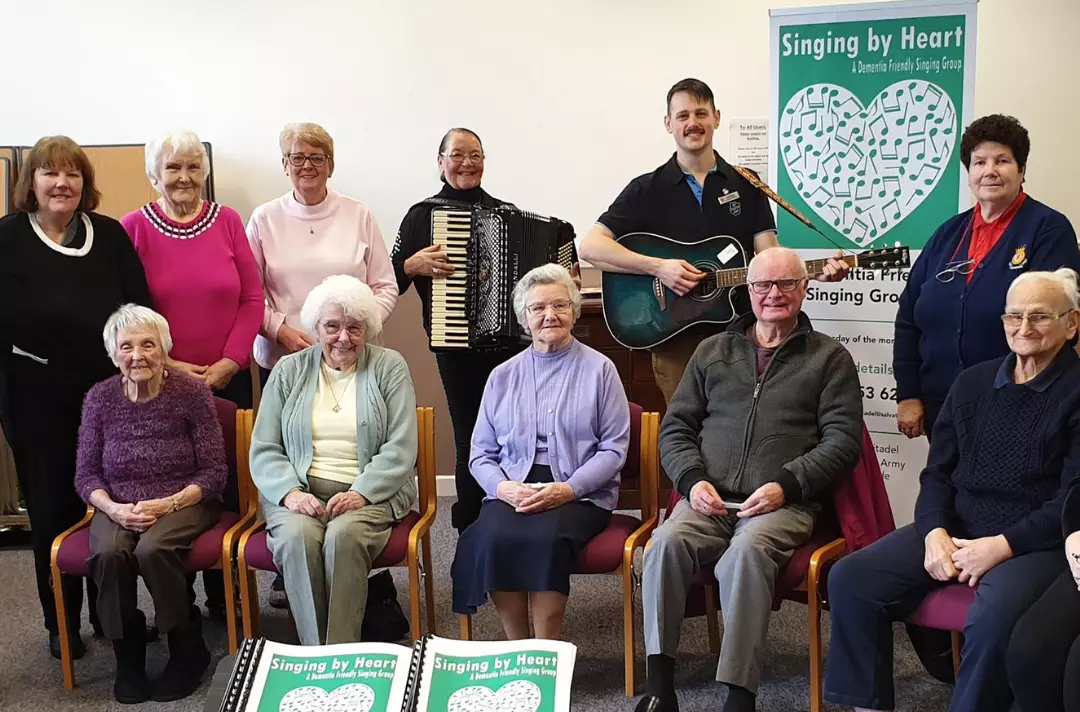
Singing by Heart
Bangor Corps signposts people to a local nursing home where Singing by Heart is run every month. The group aims to provide space for people experiencing dementia and their carers to come and connect with each other through music. The people who attend have been identified as most at risk of suffering from loneliness and isolation, and therefore the programme is important to facilitate connections.
Starfish
Starfish provides mentoring support to young people aged 9 to 16 years in schools. At the time of writing, there are 81 Starfish mentors working in 79 schools (52 primary and 27 secondary). Through Starfish, local corps across the UKI Territory have the privilege of being present in schools to support children and young people facing challenges like loneliness and isolation.
Starfish is helping to address loneliness among children and young people by providing a trusted and safe space for them to share their struggles and receive support. Through the consistent presence of mentors in schools, Starfish offers a relational approach that emphasises listening deeply and showing genuine care. Mentors create an environment where young people can thrive and develop resilience, ultimately reducing feelings of loneliness and isolation.
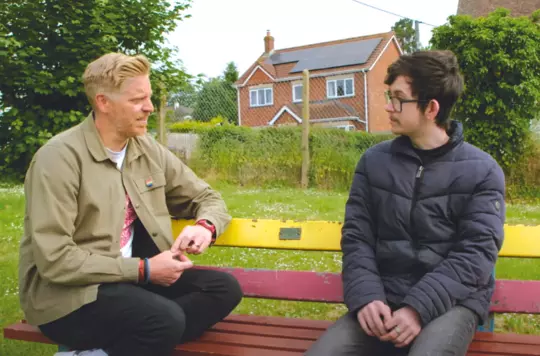
Lyn Woods learns about Starfish from Tracy Wood (Children & Youth Department).
Dewdown House
At Dewdown House the chaplain, Louise, holds a ‘Pause for thought’ service, after which the residents have tea and coffee and a piece of cake or biscuits. An invitation was given to the nursing home next door to Dewdown House, and since then they have continued to bring several residents to the service. It offers a time for older people to build relationships and share in the Christian message together.
Acts of Kindness Gardening
On the first Sunday of the month, members of Stepney Salvation Army come together and make their way to the gardens of some of the older people in the neighbourhood. These are people who don’t often meet anyone during the week. The may be living alone with family unable to visit, or having moved away and often having trouble with mobility. By visiting to help with the gardening, there is an opportunity to talk with the person and check in with how they are getting on and ensuring they have safe access to their outside spaces. For volunteers it’s also a great way to meet others and spend some quality time in the fresh air.
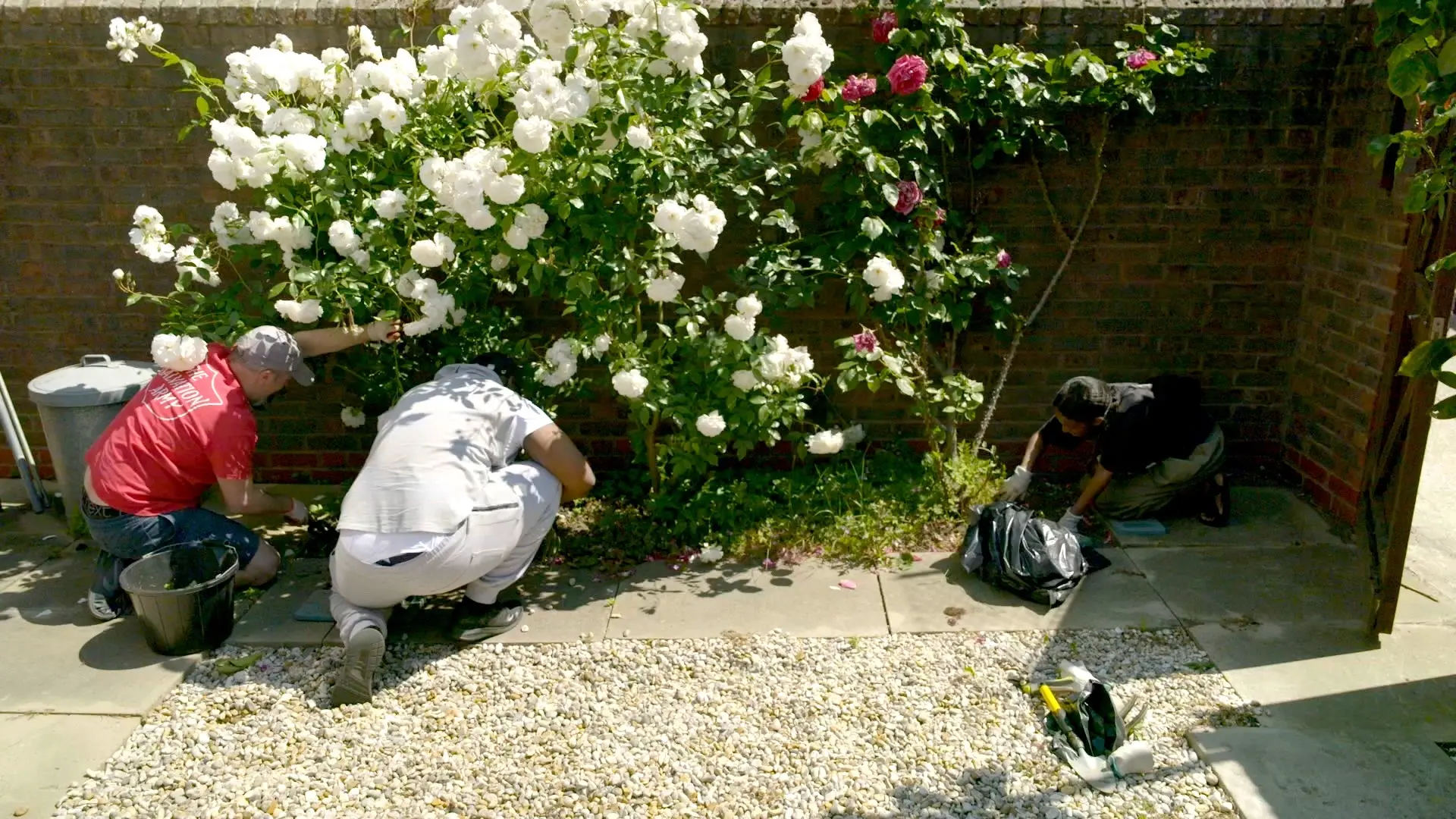
Ukraine Hub
Since the war began in Ukraine, Ramsgate Salvation Army has became the ‘home from home’ for many of the Ukrainian people who were hosted in the Thanet region of South-East England. For the displaced people it can be very lonely, particularly as they had been forced from the place they know and love into a new context and culture often without any local connections. The Salvation Army has provided a place for the Ukrainian community to meet and celebrate a shared language and culture. It has supported many people during one of the loneliest and most isolated periods of their lives, bringing light into the dark places just by being with them in their waiting.
Migrant Hub
Colchester Salvation Army has responded to the needs of the asylum-seeking population in the area by providing a migrant hub. While individuals are waiting for a decision on their asylum claim, they can be placed in hotels or disused military camps. This can lead to mental ill health due to the stress and anxiety caused by the waiting and isolation. The Salvation Army offers space for advice, conversation and English language lessons through local partner agencies. This time can often include sharing a drink, playing a game of pool, or facilitating access to art materials. These are all important ways that people are made welcome and helped to feel safe, and go a small way to reducing the isolation so often encountered by those in the UK asylum system.
VE Day Celebration
A recent VE Day celebration involved a collaboration between Greenock Corps, Greenock Floating Service and the Employment Plus service based at Greenock.
The VE Day celebration brought together a vibrant mix of people – staff, volunteers, clients and members of the public, including those supported by external agencies and walk-ins from the local community.
Guests were warmly welcomed at the door; this helped to ease any nerves and create an inclusive, relaxed atmosphere from the outset. The seating was intentionally mixed, and this encouraged conversation and connection across all groups.
Throughout the date everyone was treated to an afternoon tea with hot drinks, sandwiches and sweet treats. There was also a sing-along session, complete with lyrics on screen. This time brought laughter and joy to the room. Even those who didn’t sing joined in by clapping along, creating a shared moment of light-hearted fun.
This event demonstrates how simple acts of hospitality and inclusion can make a powerful impact in tackling loneliness and forming meaningful relationships.
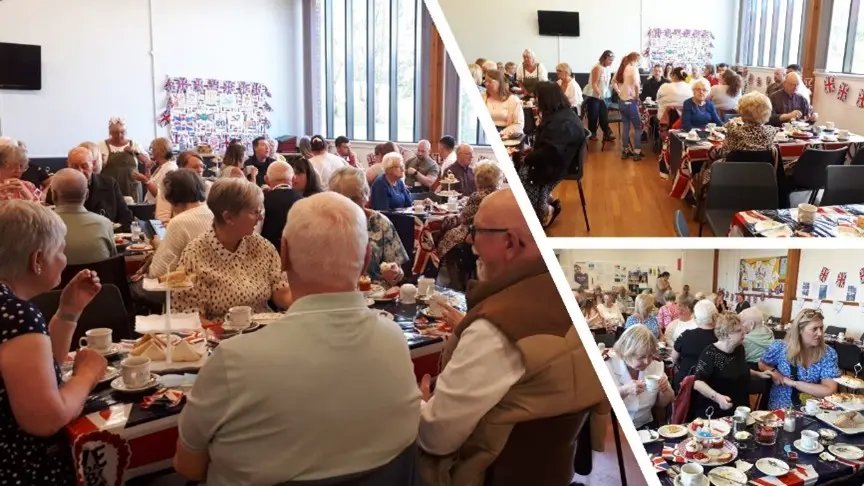
Enabled
Enabled provides spiritual and social fellowship for anyone with a disability and their carers. A key message of the group is that it is open for anyone from any age or background. The group has multiple events throughout the year including its Summer School of Arts and the Music Man project.
‘Keeping in Touch’ is a befriender service by Enabled, created to reduce isolation and loneliness among people with disabilities by fostering meaningful social connections. The service addresses a wide range of social barriers including limited mobility, societal attitudes and lack of accessible transport. Participants can keep connected through video calls and messaging or in-person meet-ups. The flexibility ensures that each member can engage in a way that suits their preferences and abilities.
The Music Man project is a fully inclusive music service that gives people with disabilities the same opportunities as mainstream musicians. It nurtures creativity, builds confidence and provides a joyful outlet for emotional expression. The impact of the project is far-reaching. It offers a safe, welcoming space to connect with others, build friendships and feel part of a community.
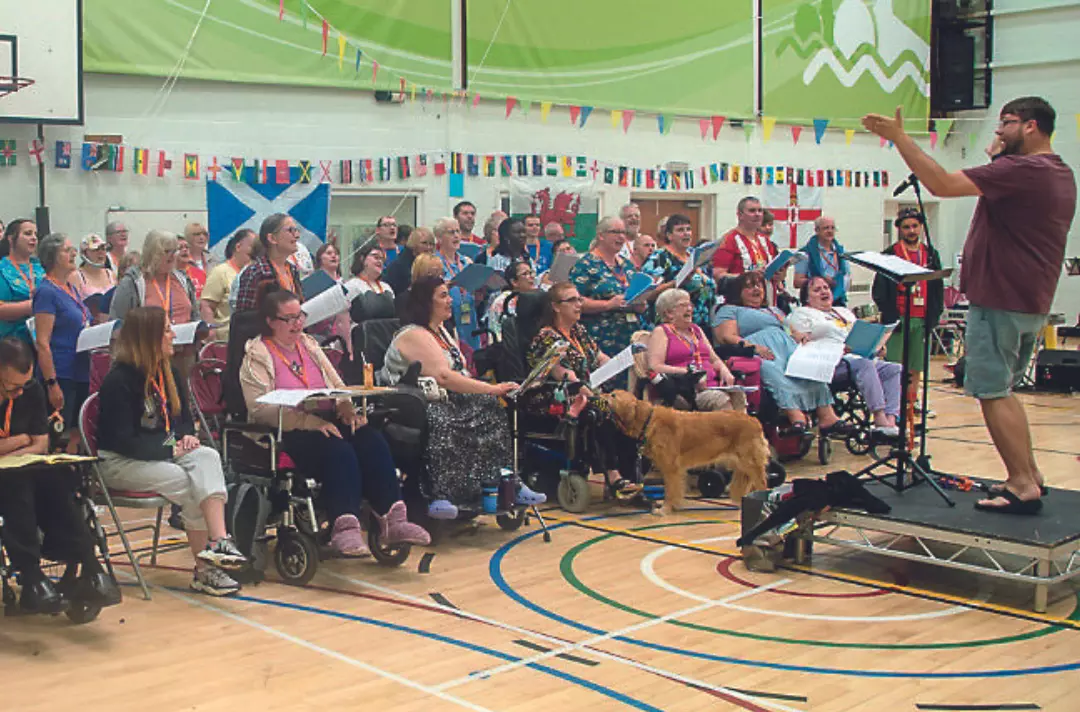
Family Days
Shotts Corps Family Days have brought local families together. In 2022, Shotts Corps organised a family trip to Edinburgh Zoo, with funding obtained from the local council so that families attended free of charge. In the past, the corps arranged a pantomime trip for which the corps officer undertook a sponsored cycle ride to raise funds. The initiative allows parents and children to connect and support one another.


Need help putting your ideas into practice?
Take a look at the ideas page - based on proven interventions, the resources and ideas selected will help you to effectively get started.